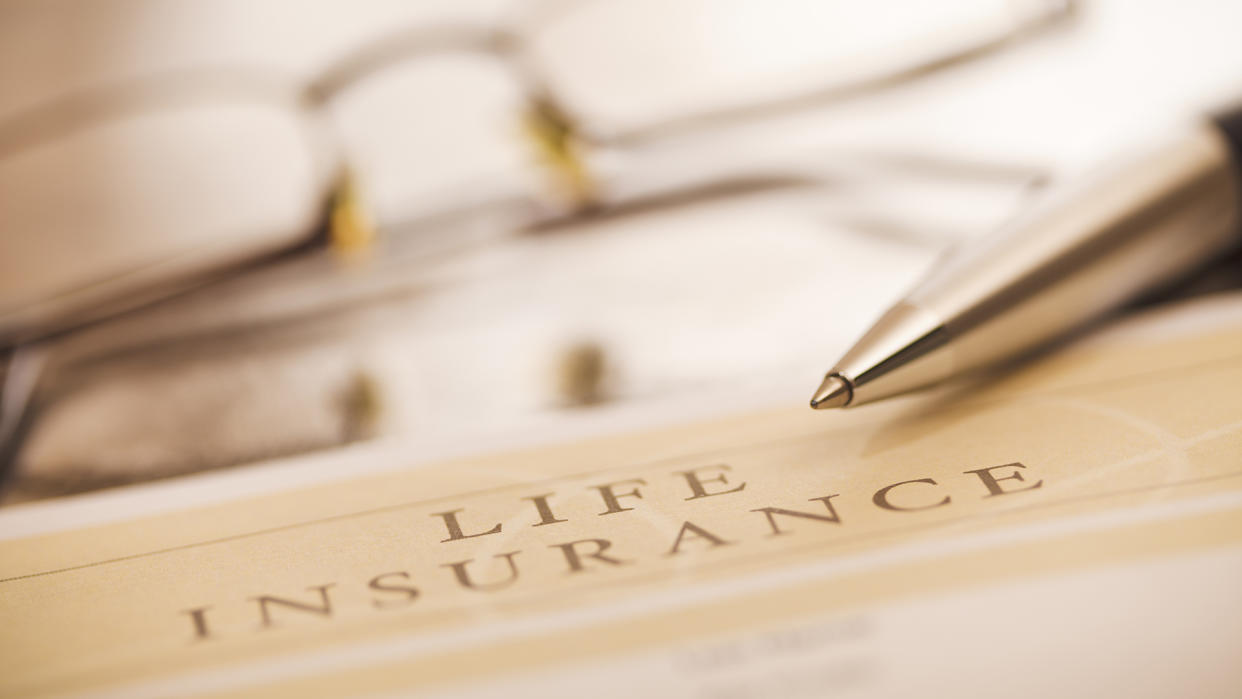I’m a Life Insurance Expert: Here’s the Best Age To Get a Policy

Deciding when to purchase a life insurance policy may be one of the most important financial decisions you’ll make. Get it too late and you’ll pay higher premiums. Get it too early and you could be paying unnecessarily for years. So what’s the perfect time to buy life insurance coverage?
Check Out: How Much Does the Average Middle-Class Person Have in Savings?
Try This: One Smart Way To Grow Your Retirement Savings in 2024
We spoke to two experts to get their insights: Jiten Puri, CEO of PolicyAdvisor.com, and Brandon Robinson, president and founder of JBR Associates. They share their expert thoughts below.
Also, see the pros and cons of borrowing money from a life insurance policy.
Why is it Important To Think About Life Insurance?
Life insurance is something that often gets put on the back burner until a major life event finally prompts you to get covered. However, there are important reasons to be proactive about securing a policy well before you need it.
“You will see many experts recommend that you buy life insurance when you hit a major milestone in life, such as getting married, having a child, buying a home, getting a promotion, moving to a new city, etc,” Puri said. “But you absolutely do not have to wait until then to start planning for the future and lock in a life insurance policy for when that time comes.”
Explore More: You Can Get These 3 Debts Canceled Forever
What Are the Benefits of Having Life Insurance?
Arguably, the biggest benefit of life insurance is the peace of mind it provides. It’s meant to replace your lost income in the event of your death. This way your family can continue covering their expenses and you can rest assured that your dependents will avoid financial catastrophe.
Life insurance death benefits can also be used to cover final expenses like funeral costs, medical bills, legal fees and estate taxes that could burden your family during an already difficult time.
“In modern times, it’s not uncommon to see people using crowdfunding to pay for funerals or take care of other costs,” Puri said. “Studies show most households are just one emergency away from living in poverty, because so many can only afford to live paycheck to paycheck due to the extremely high cost of living. Life insurance can help families avoid having to bear these unexpected costs or take on unexpected debt when a family member dies.”
“It can also help build generational wealth by ensuring surviving family members have the means to get out of debt, start investing, help children pay for college, put a downpayment on their first home, or more,” he said.
So What’s the Best Age?
“The younger you purchase life insurance, the better it will be,” Puri said.
The biggest advantage of buying life insurance at a younger age is that you’ll lock in a low rate for the life of the policy. Premium costs increase significantly as you get older.
“Many times, people don’t start thinking about life insurance until they are older, but we don’t recommend waiting until that late to start. By then, prices are a lot higher than what you would be paying if you got your policy when you were in your 20s or 30s and locked in the low rates.”
If You’re in Your 30s
Robinson recommends that if you’re between the ages of 30 and 35, you should aim to secure a term life insurance policy. During this age range, monthly premium rates tend to be lower and applicants can qualify for larger death benefit coverage amounts.
“Keep in mind that ‘term’ insurance is finite and will expire when you reach the end of the term,” Robinson said. “Plus, life insurance companies calculate the actuarial costs with a high probability that the policy will expire before you do. However, term life insurance is designed to protect your family and provide for them if you pass before your life expectancy.”
For this reason, Robinson advises obtaining a 30-year term life policy. By the time the 30-year term lapses when you reach ages 60 to 65, you’ll have access to investment accounts like IRAs and 401(k)s without penalty. The accumulated balances in these accounts should ideally be sufficient to cover family expenses, reducing the continued need for life insurance coverage at that stage of life.
If You’re in Your 40s or 50s
If you’re a little older, Robinson said, you should consider opening a Tax-Free Retirement Account (TFRA).
“These are cash-value life insurance policies that grow over time,” Robinson said.
He explained that if you are maxing out contributions to accounts like 401(k)s or Roth IRAs, you can put any remaining monthly investment funds into a TFRA. Your account balance will grow either at a fixed rate or it will track the performance of an index like the S&P 500, without any market risk.
“And the growth will all be tax-free if the account is set up correctly,” Robinson said. “When you retire, you will have a healthy tax-free fund to help offset the taxes on your other qualified investments.”
More From GOBankingRates
Suze Orman: 5 Social Security Facts Every Soon-To-Be Retiree Must Know
Avoid These 7 Cars That Will Only Last You Half as Long as the Average Vehicle
The Biggest Mistake People Make With Their Tax Refund -- And How to Avoid It
This article originally appeared on GOBankingRates.com: I’m a Life Insurance Expert: Here’s the Best Age To Get a Policy
